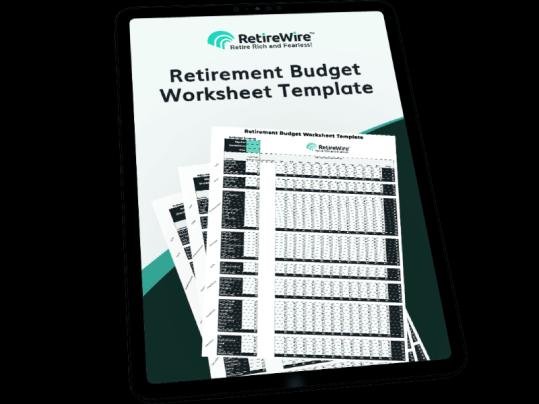Business
3 Ways A Great Budget Can Save Your Retirement
How many years did you spend going to school? 12, maybe 16 (or more possibly)? I’m going out on a limb here and pointing out that you learned very little—if anything at all—about retirement planning in school.
Then you worked for 30+ years. You saved your pennies and invested them wisely. You built up a nice little nest egg for retirement only to get here – on the doorstep of your golden years completely terrified of what to do next.
Planning For Retirement Is Simply Complex
Yes, I realize the oxymoron there. How can something be simple when it’s so complex? You have to think about all of the important money decisions that come along with your retirement, like:
- When should I claim Social Security, or how should I claim my pension benefits?
- What type of investment plan makes the most sense to minimize my risks while maximizing results?
- What if the market crashes? Or inflation stays high?
- How should you draw retirement income from your various tax-preferences accounts?
- And a lot more!
While retirement planning is highly complex, at it’s most basic level it’s really pretty simple – you must create a retirement plan. Not just any plan will do, you really need to create your best plan for retirement if you truly want to enjoy the retirement you always dreamed of.
The Four Components Of Every Retirement Plan
If you took any accounting classes or learned the basics, this will make a lot of sense. The most fundamental pieces of your retirement plan are your current and expected:
- Assets
- Income
- Expenses
- Liabilities
There’s only so much you can do with your assets. Sure, different levels of investment risk and management styles apply here, but for the most part you’re not trying to get rich anymore, you’re trying to enjoy life!
Your income streams like Social Security are mostly fixed. There are some decision points to make—and they’re incredibly important—but the variation in your retirement results won’t necessarily change your life.
Your liabilities are hopefully few (if any). Ideally you’ve got your home paid off (or close to it) and you don’t carry any debt.
That brings me to your retirement expenses. How much do you need to live on and enjoy retirement? After 30 years of creating hundreds of retirement plans, I can assure you the biggest mistake retirees make is mismanaging and/or underestimating their retirement expenses.
3 Ways A Great budget Can Save Your Retirement
Since the biggest mistakes retirees make is poorly estimating or handling their current and future expenses, I’m going to focus on 5 ways a Great Retirement Budget can actually save your retirement and help you enjoy all of the things you wanted from retirement life.
#1 Correctly Estimate Your Expenses
I can’t tell you how many times I’ve seen retirees estimate an annual budget of, let’s say, $100,000. After 6 months go by they look at their investments to draw an extra 10K to take a trip, or an extra 35K to buy a boat. These extraneous draws can completely put your retirement plan in a tailspin!
To make matters worse, if you underestimate by a monthly amount (say you realized your actual budget is $500/month more than you’d previously thought) it’s far worse because it’s each and every year. That $6,000 per year extra can wipe you out in a hurry more so than the random “one-off” expenses for a car or a trip.
Solution: Spend at least one full year tracking your expenses to make sure you don’t miss anything. Often you’ll put together a budget for retirement only to find out you forgot about the bug guy or the umbrella insurance policy. Spending at least one full year will help you make sure you’re not missing any of the little things most people forget about.

#2 Separate Your Expenses into Needs, Wants, and Wishes
Every great plan for retirement will include not only your expenses but their level of importance. You’ll see what I mean in this Free Retirement Budget Spreadsheet Template Here.
There are certain expenses you absolutely cannot live without like food and clothing, finishing off the mortgage or a Medicare Advantage plan.
There are other expenses you really want to spend like travel and hobbies. Those are wants, and while they’re important they could be curtailed a little if necessary unlike food and shelter.
Finally there are expenses you’d like to do such as charitable donations or leaving a bequest to your kids. While they’re also important, your retirement goals are likely more important, and these are the lowest hanging fruit when you need to cut back a little bit.
Solution: Separate your current and future retirement expenses into categories of Needs, Wants, and Wishes. In bad markets or shaky economies, review your retirement plan and see if you’re still on track! The easiest way to fix your retirement plan is to cut back on the less important things for a year or two.
#3 Build In The “One-Off” Or Rare Large Expenses
Most of your retirement expenses will be annually recurring. Other expenses are larger and more rare like buying cars during retirement or throwing a fancy 50th anniversary party. Those expenses can easily be accounted for (including inflation factors) using great retirement planning software, but in lieu of that make sure you’re amortizing and segmenting those expenses properly.
For example, let’s say you want to spend $50,000 on a car in 5 years, and one in 10 years. The price of that car will rise by (let’s assume) 3% for inflation thereby costing $57,963 (you can work this out with a simple inflation calculator easily found online) and $67,193 in 10 years.
To make matters more complex, those dollars will be earning some rate of return over the next 5 and 10 year periods thereby reducing the cost as your money grows. For this simple exercise we’ll assume you’re all in cash and no growth and the amounts are as accurate as possible.
Solution: Add a line item in your retirement budget for $57,963 in five years by dividing that amount either into monthly savings ($966 per month) or annual savings ($11,592). Make sure you separate those additional savings so the money is there waiting to be spent on your new vehicle 5 and 10 years from now!
A Great Retirement Budget Can Make A Great Retirement
Those three things – Correctly estimate your expenses, divide them into needs/wants/wishes, and add line items for large rare expenses can go a long way towards helping you live both a memorable and purposeful retirement with all the fun and good family times you dreamed of!If you need help getting started on your Best Retirement Budget try Using this Free Excel Spreadsheet Tool for starters! I created and tweaked it over 30 years and hundreds of retirement plans so you can have a great budget calculator right at your fingertips!

















